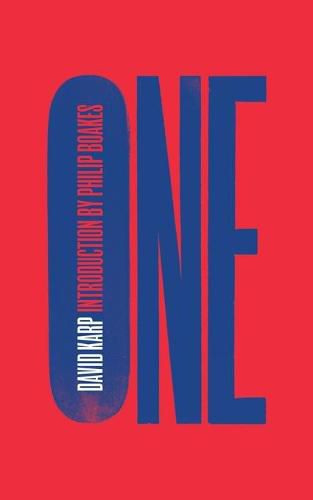Readings Newsletter
Become a Readings Member to make your shopping experience even easier.
Sign in or sign up for free!
You’re not far away from qualifying for FREE standard shipping within Australia
You’ve qualified for FREE standard shipping within Australia
The cart is loading…






This title is printed to order. This book may have been self-published. If so, we cannot guarantee the quality of the content. In the main most books will have gone through the editing process however some may not. We therefore suggest that you be aware of this before ordering this book. If in doubt check either the author or publisher’s details as we are unable to accept any returns unless they are faulty. Please contact us if you have any questions.
In a dateless future, a seemingly benevolent totalitarian State has eliminated poverty, crime, war, and religious intolerance and brought the happiness of conformity to its people. Professor Burden thinks he too is a loyal citizen, but the Department of Internal Examination discovers that he secretly values his individuality. Believing Burden to be a threat to the continued existence of the State, an examiner named Lark decides to cure him of his heresy and return him to being a normal, productive member of society–by persuasion if possible, but by complete obliteration of his identity if necessary.
First published in 1953, One earned critical comparisons to the great dystopian novels of Orwell and Huxley. It is both a gripping psychological thriller and an indictment of totalitarianism which, as Philip Boakes argues in the new introduction to this edition, is more relevant than ever.
The publishers have bracketed this novel with Darkness at Noon, Nineteen Eighty-Four and Brave New World, which I at first thought presumptuous; but now, after reading it, I am inclined to agree. - Cyril Connolly, The Sunday Times
[P]erhaps even more terrifying [than Orwell’s 1984]. - Saturday Review
A thriller, though physical danger is rarely present; a detective story without a detective; a vibrant chase without physical movement; and a restatement of an important ethical point which probably badly needs to be restated now. Compared to it, most of the Utopian writing of this century … is mere science fiction. - The New York Times
$9.00 standard shipping within Australia
FREE standard shipping within Australia for orders over $100.00
Express & International shipping calculated at checkout
This title is printed to order. This book may have been self-published. If so, we cannot guarantee the quality of the content. In the main most books will have gone through the editing process however some may not. We therefore suggest that you be aware of this before ordering this book. If in doubt check either the author or publisher’s details as we are unable to accept any returns unless they are faulty. Please contact us if you have any questions.
In a dateless future, a seemingly benevolent totalitarian State has eliminated poverty, crime, war, and religious intolerance and brought the happiness of conformity to its people. Professor Burden thinks he too is a loyal citizen, but the Department of Internal Examination discovers that he secretly values his individuality. Believing Burden to be a threat to the continued existence of the State, an examiner named Lark decides to cure him of his heresy and return him to being a normal, productive member of society–by persuasion if possible, but by complete obliteration of his identity if necessary.
First published in 1953, One earned critical comparisons to the great dystopian novels of Orwell and Huxley. It is both a gripping psychological thriller and an indictment of totalitarianism which, as Philip Boakes argues in the new introduction to this edition, is more relevant than ever.
The publishers have bracketed this novel with Darkness at Noon, Nineteen Eighty-Four and Brave New World, which I at first thought presumptuous; but now, after reading it, I am inclined to agree. - Cyril Connolly, The Sunday Times
[P]erhaps even more terrifying [than Orwell’s 1984]. - Saturday Review
A thriller, though physical danger is rarely present; a detective story without a detective; a vibrant chase without physical movement; and a restatement of an important ethical point which probably badly needs to be restated now. Compared to it, most of the Utopian writing of this century … is mere science fiction. - The New York Times